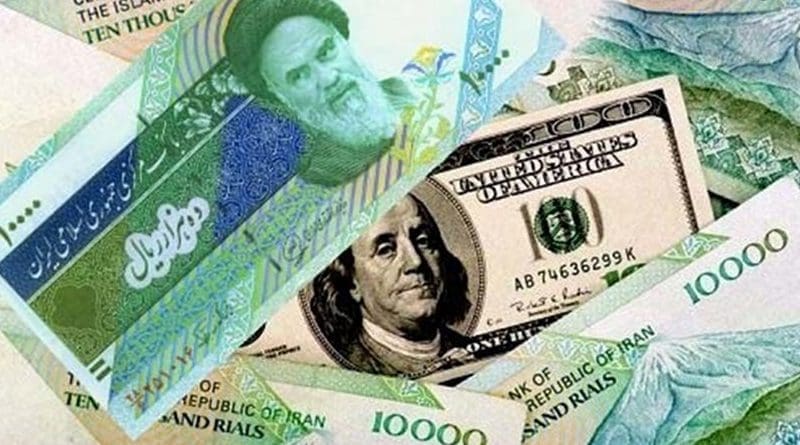Why The Future Looks Bleak For Iran – Analysis
By Observer Research Foundation
Chinese energy majors are now importing 360,000 barrels per day, of crude oil from Iran. This is only half of what they were importing before the US pullout from the deal and the imposition of sanctions.
By Avijit Goel
The European Union fundamentally disagreed with US President Donald Trump’s unilateral decision to pullout of the 2015 nuclear deal with Iran (Joint Comprehensive Plan of Action — JCPOA), where Iran was to curb its nuclear and ballistic programme in return for international sanctions being lifted. The period before the US reneging on the deal (between 2015 and 2018) saw a brief glimmer of global integration hope for Iran, and enabled multinationals, including Renault, Airbus and Total, to venture into Iran. Energy hungry Asian giants like China and India had substantial quantities of hydrocarbons being imported from Iran in this time.
With Trump reneging on the deal, while blaming Iran for not living up to its side of the bargain, it heated up the rhetoric from the EU block against the US narrative. With low hopes of any reconciliation between the US and Iran, the EU companies which had set up substantial operations in Iran has to start withdrawing to cut losses.
The EU, meanwhile, was left scrambling to find a way to uphold the deal, which it sees as necessary to keep the US flip-flop in check and reducing the impact of the extra-territorial sanctions.
In order to send a diplomatic message of bonhomie with the Iranians, and in trying to protect the investments of their companies, the first week of February 2019 saw three of the eight signatories to the Iran nuclear deal, formally establishing the INSTEX (Instrument for supporting Trade Exchanges). France, Germany and the UK established this as a special purpose vehicle to allow them to bypass US sanctions on trade with Iran.
The INSTEX has been set up to enable non-dollar trade between Europe and Iran, and as a mechanism, will deal with food and medicine (humanitarian non-sanctioned categories by the US). In all the excitement around INSTEX, it is key to note that it excludes oil and gas — a cornerstone of the Iranian economy. Unless there is a dramatic change of events or inclusion of hydrocarbons into the scope of INSTEX, it seems like a minor cosmetic face-saver for the three European nations in their dealings with Iran.
While Iran has been mounting pressure on the EU to respect the deal, it is unlikely that EU companies (with major presence in the US) will do anything in open defiance, thereby risking their access to the US financial ecosystem.
However, what’s interesting is the side show Iran has been having with China in recent times. Iranian Foreign Minister Javad Zarif recently met with his Chinese counterpart, Wang Yi, who welcomed Iran’s efforts to deepen “strategic trust” with China. The delegation from Iran included Iranian parliamentary speaker Ali Larijani, the leader of Iran’s central bank and the country’s finance and petroleum ministers.
Given the composition of the delegation, the emergence of ideas for a trade mechanism that insulates Iranian-Chinese trade from sanctions could be an interesting outcome. Before the US withdrew from the Iran deal, China had been the largest global importer of Iranian oil, cementing its importance as an economic partner to Tehran. In turn, Iran imported a significant amount of manufactured goods from China. That leaves a variety of possibilities in terms of bartering arrangements that could bypass US sanctions. A payment channel already exists between China and Iran through the Kunlun Bank, although the volume of transactions that can be facilitated through this channel would not be sufficient to fulfil the Iranian desire for large scale trade in oil, goods and financial transactions.
Chinese energy majors (Sinopec and CNPC) are now importing 360,000 barrels per day, of crude oil from Iran. This is only half of what they were importing before the US pullout from the deal and the imposition of sanctions.
This is a worrying aspect for Iran. It shows that China has appeared willing to comply with US sanctions, and its larger firms would avoid irritating the US. (Huawei’s recent experience with US could be a leading factor). Perhaps, smaller banks and companies that China could more easily shield from US sanctions, are the way forward, but then, there always will be a volume limitation.
Though China and the EU remain important Iranian political and diplomatic allies, it will be difficult for them to defy the US pressure campaign against Iran. There might be toasts raised for respecting Iran’s right to global economic integration, and more of the smaller initiatives like INSTEX or small Chinese measures, but anything substantially concrete to allow for the integration remains a distant dream.

